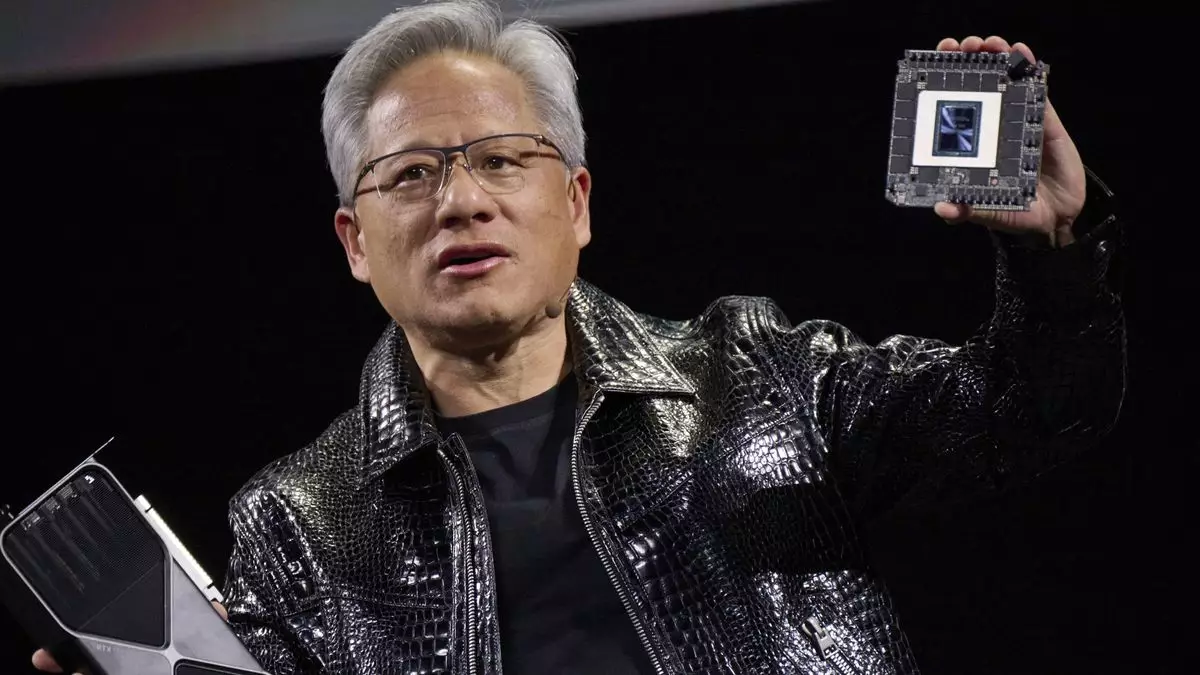In the competitive realm of artificial intelligence and gaming technology, Nvidia has established itself as a frontrunner, particularly with its GPU innovations. However, recent reports indicate that some of its biggest clients—Microsoft, Amazon, Google, and Meta—are scaling back their orders of the much-anticipated Blackwell series of AI chips. This trend has emerged in light of concerns over overheating issues and performance glitches associated with the Blackwell architecture. Yet, despite these development setbacks in AI hardware, Nvidia appears unfazed when it comes to its upcoming family of gaming GPUs, the RTX 50 series. The question remains: will the Blackwell issues affect the performance and reliability of these new gaming chips?
Reports from credible sources, such as The Information, suggest that the overheating problems with Nvidia’s Blackwell GPUs are significantly affecting order delays and customer satisfaction. According to these reports, the main concern lies in Nvidia’s ability to maintain reliability, with customers reportedly opting to revert to the older Hopper generation of GPUs, which lacks the same level of issues. Nvidia’s CEO, Jensen Huang, has openly acknowledged that the Blackwell GPUs encountered design flaws, impacting the yield rate—essentially the ratio of workable chips derived from each manufacturing batch. While Huang did not explicitly mention overheating in his comments, the connection to performance dips and consequently delayed deliveries cannot be overlooked.
The nature of semiconductor manufacturing means that design flaws in one GPU series could theoretically have implications for another. For instance, the Blackwell architecture shares some components with the RTX 50 series. This could raise concerns about whether issues such as overheating or inefficiencies in the Tensor cores of Blackwell might carry over into the gaming GPUs. However, the differences in the layout and functional units between the two families of chips could significantly lessen the extent of any potential issues.
Moreover, it is crucial to recognize that the workloads processed by AI chips and gaming GPUs are inherently dissimilar. AI chips like Blackwell are optimized for extensive data array computations, while gaming GPUs are tailored towards rendering graphics at high speeds. This inherent difference in workload could mean that even with shared components, the variations in usage patterns may prevent overheating issues from impacting the RTX 50 series.
While the speculation about the RTX 50 series seems optimistic, the uncertainty surrounding Nvidia’s Blackwell architecture leaves many questions unanswered. So far, skepticism remains due to the reliance on a single source for the overheating narrative. Although The Information has reported these concerns repeatedly, the absence of corroborating evidence or reports from other industry insiders makes it difficult to gauge the true severity of the situation.
Furthermore, the reputation of Nvidia rests on its ability to innovate swiftly and effectively. Therefore, industry watchers will be keenly observing not only the performance of the RTX 50 gaming GPUs but also the company’s response to the current challenges surrounding the Blackwell series. Still, Nvidia’s resilience, backed by its robust history of overcoming obstacles, lends a certain level of assurance as it pushes forward with its gaming technology.
As the gaming community anticipates the launch of Nvidia’s RTX 50 series, it remains essential to keep an eye on how the company manages the quality control of its products. Addressing the challenges presented by the Blackwell GPUs will be crucial to re-establishing confidence among consumers and enterprise clients alike. While the Blackwell series suffers from significant design and overheating concerns, the potential effects on the upcoming gaming GPUs appear mitigated by the differences in use case and architecture. However, only time will tell how Nvidia navigates this precarious landscape, and the tech community remains eagerly awaiting further developments.

